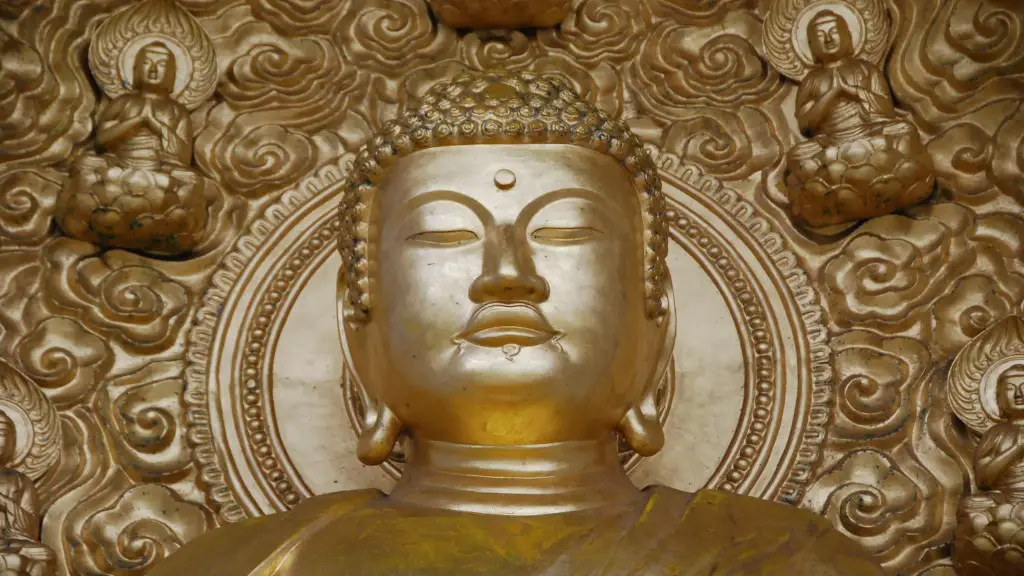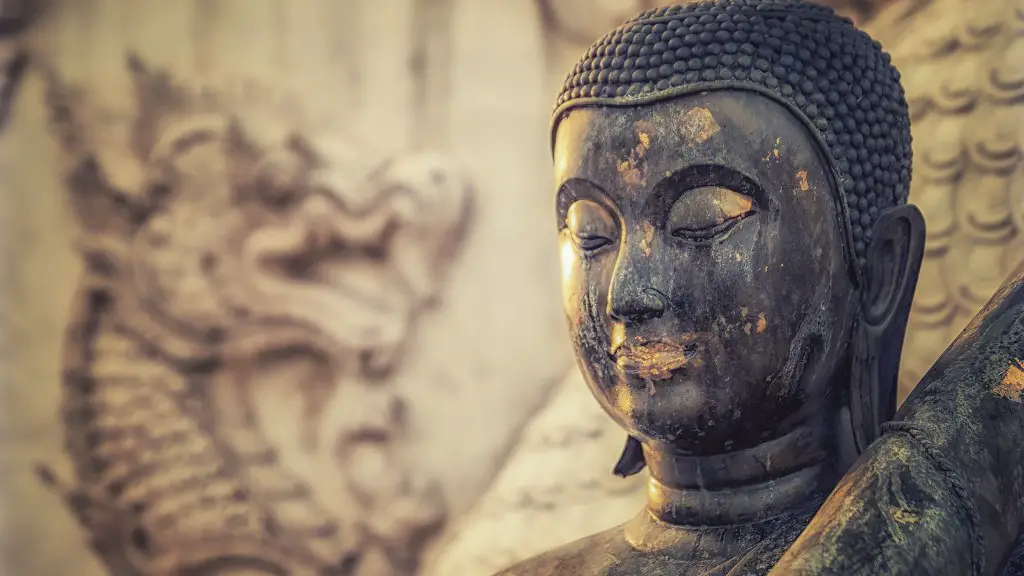Buddhism is a religion and philosophy originating in India with its core teachings derived from the Buddha. Buddhists follow the Middle Way between extremes of self-denial and self-indulgence. Central to Buddhist philosophy is the belief in karma and rebirth.The Buddha taught that moral principles not only lead to happiness but also result in inner peace.
Buddhism is a religion based on the teachings of Siddhartha Gautama, who was born in Nepal in the 6th century B.C.E. Siddhartha Gautama was a prince who lived a sheltered life until he left his palace and saw the suffering of ordinary people. He decided to leave his comfortable life to find a way to end suffering. After years of study and meditation, he attained enlightenment and became known as the Buddha, which means “awakened one.” The Buddha taught that the way to end suffering is to live in a way that is moral and compassionate, and to let go of attachment to the things of this world.
What does the Buddhism religion believe in?
Buddhism is one of the world’s oldest and largest religions. It began in India over 2,500 years ago and teaches that the human life is one of suffering. Buddhists believe that meditation, spiritual and physical labor, and good behavior are the ways to achieve enlightenment, or nirvana.
Buddhism is a religion that is based on the teachings of Siddhartha Gautama. The main principles of this belief system are karma, rebirth, and impermanence. Buddhism teaches that our actions have consequences and that we will be reborn into different forms based on our actions in this life. This belief system also teaches that everything is impermanent and that nothing lasts forever.
What type of religion is Buddhism
Buddhism is a religion that does not believe in a unique creator god. It is a kind of trans-polytheism that accepts many long-lived gods, but sees ultimate reality, Nirvana, as beyond these.
The Five Precepts are guidelines for living a moral and ethical life. They are:
1. Refrain from taking life
2. Refrain from taking what is not given
3. Refrain from the misuse of the senses
4. Refrain from wrong speech
5. Refrain from intoxicants that cloud the mind.
Do Buddhist believe in god?
Buddhism is a tradition focused on spiritual liberation and not a theistic religion. The Buddha himself rejected the idea of a creator god. Buddhist philosophers have argued that belief in an eternal god is nothing but a distraction for humans seeking enlightenment.
In Buddhism, there is no concept of punishment or reward. There is no divine being who decides who goes to hell or heaven. There is merely the illusory results of our thought, words and deeds, which we call karma.
What is Buddhism vs Christianity?
Christianity is a monotheistic religion that worships one God as the creator of the universe, while Buddhism is a nontheistic religion that does not believe in a creator God. Christianity teaches that God is a loving and merciful being who provides humans with guidance and salvation, while Buddhism teaches that humans are responsible for their own actions and salvation. Both religions have different beliefs about the afterlife, with Christianity teaching that there is a heaven and hell, and Buddhism teaching that there is reincarnation.
Buddhism teaches that drinking or using other kinds of drugs can cause carelessness and should be avoided. It is believed that strong Buddhist beliefs would have a significant impact on alcohol use.
What do Buddhists believe happens after death
According to Buddhist teaching, life and death are part of a continuum. Consciousness (the spirit) continues after death and may be reborn. Death, therefore, can be an opportunity for liberation from the cycle of life, death and rebirth.
Buddhism is a religion and philosophy founded in India by Siddhartha Gautama. He is also known as “The Buddha”. With about 470 million followers, it is one of the major world religions. The main teachings of Buddhism are called the Four Noble Truths and the Eightfold Path.
What is the main message of Buddhism?
There is a difference between the concepts of rebirth and reincarnation in Buddhism. Reincarnation refers to the idea that a person is reborn into another body after they die. Birth, living, death, and rebirth are all part of the cycle of reincarnation. Rebirth, on the other hand, is the belief that a person’s soul is reborn into another person or animal after they die.
There is no historical evidence that Buddhism had any influence on the development of Christianity. Scholars have looked into the possibility of influence by Buddhism on Christianity, but have not found any serious evidence to support such a claim. Most scholars believe that Christianity developed out of 1st century Palestinian Judaism, without any influence from Buddhism.
What food is forbidden in Buddhism
Food is an important part of Buddhist tradition and culture. monks and followers of the Buddha practise conscious eating, paying attention to balance, harmony and delicacy in their food preparation.
The Buddha himself advised monks to avoid eating 10 kinds of meat for self-respect and protection: humans, elephants, horses, dogs, snakes, lions, tigers, boars and hyenas.
Today, many Buddhists continue to follow this advice, eating only vegetarian or vegan foods. Others may eat meat, but do so mindful of the suffering of animals and with the intention of causing as little harm as possible.
The precepts are basic guidelines for living a moral and ethical life according to the Buddhist teachings. They are designed to help us develop our character and progress along the path to enlightenment. The precepts include abstaining from killing living beings, stealing, sexual misconduct, lying and intoxication.
Do Buddhists celebrate Christmas?
Many Buddhists do in fact celebrate the holidays, despite what some may believe. Among Asian American Buddhists, three-quarters celebrate Christmas. On December 8th, some Buddhists also observe Bodhi Day, which marks the day when the Buddha reached enlightenment. So while Buddhists may not celebrate the holidays in the traditional sense, there are still many who do observe and participate in these special days.
Buddhist teachings state that there are divine beings called devas (sometimes translated as ‘gods’) that inhabit different heavens. In addition, there are other Buddhist deities that are associated with different rebirths in the cycle of saṃsāra. These beings can be either helpful or harmful to beings in saṃsāra, depending on their actions.
What do Buddhists pray for
Buddhist prayers are a form of meditation and a way to connect with the enlightened energies of the buddhas, bodhisattvas, and spiritual masters. The act of prayer itself is a form of letting go, of surrendering the ego’s resistance to humility. In doing so, we open ourselves up to the possibility of accessing the enlightened qualities of our own hearts and minds.
There is no such thing as a soul or self according to Buddhist teachings. What exists is a cycle of rebirth and redeath that is the fundamental nature of existence.
Warp Up
Buddhism is a religion and philosophy based on the teachings of the Buddha, Siddhartha Gautama, who lived in India in the 6th and 5th centuries BCE. The heart of Buddhist teaching is often referred to as the Four Noble Truths: the truth of suffering, the truth of the cause of suffering, the truth of the end of suffering, and the truth of the path that leads to the end of suffering.
Buddhism is a religion that was founded by Siddhartha Gautama, also known as the Buddha, in the 6th century BCE. It is a nontheistic religion, consisting of the beliefs and practices based on the Four Noble Truths and the Eightfold Path. Buddhism is the fourth-largest religion in the world, with over 520 million followers.




